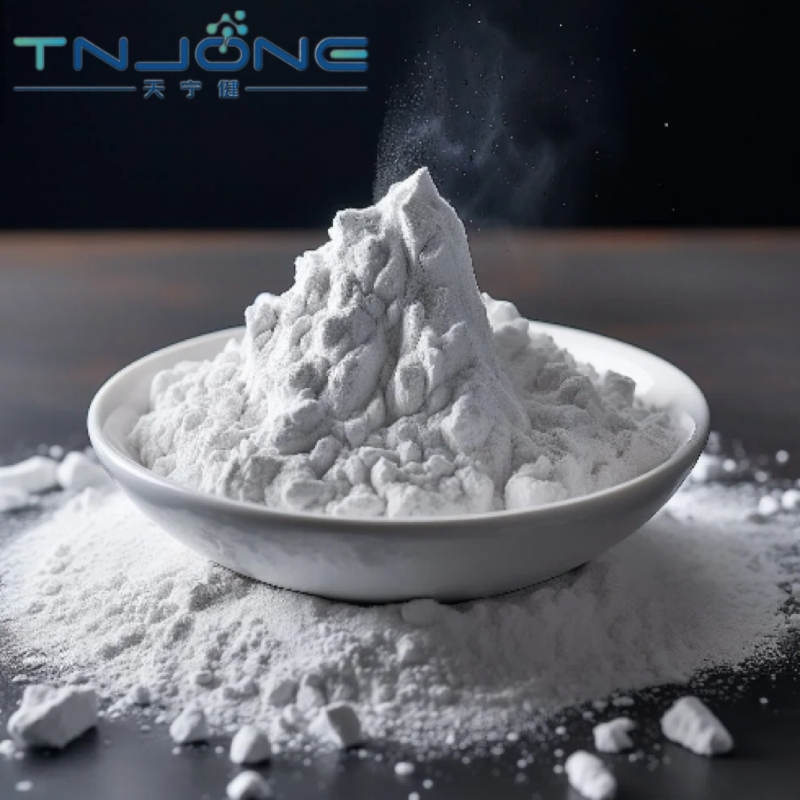-
Categories
-
Pharmaceutical Intermediates
-
Active Pharmaceutical Ingredients
-
Food Additives
- Industrial Coatings
- Agrochemicals
- Dyes and Pigments
- Surfactant
- Flavors and Fragrances
- Chemical Reagents
- Catalyst and Auxiliary
- Natural Products
- Inorganic Chemistry
-
Organic Chemistry
-
Biochemical Engineering
- Analytical Chemistry
-
Cosmetic Ingredient
- Water Treatment Chemical
-
Pharmaceutical Intermediates
Promotion
ECHEMI Mall
Wholesale
Weekly Price
Exhibition
News
-
Trade Service
The 2-Oxo-4-phenylpyrrolidine-3-carboxylic acid ethyl ester is a compound that is commonly used in the chemical industry, particularly in the production of pharmaceuticals and other medicinal products.
This compound is synthesized through the reaction of 2-oxo-4-phenylpyrrolidine-3-carboxylic acid and ethyl alcohol, which is then esterified to produce the ethyl ester.
The process of synthesizing 2-Oxo-4-phenylpyrrolidine-3-carboxylic acid ethyl ester typically involves a multi-step reaction process.
The first step involves the preparation of 2-oxo-4-phenylpyrrolidine-3-carboxylic acid, which is synthesized through the hydration of 4-chloro-2-oxo-p-tolene sulfonamide.
The second step involves the esterification of 2-oxo-4-phenylpyrrolidine-3-carboxylic acid with ethanol, which is then purified to produce the ethyl ester.
The esterification reaction between 2-oxo-4-phenylpyrrolidine-3-carboxylic acid and ethyl alcohol is typically carried out in the presence of a catalyst, such as hydrochloric acid or sulfuric acid.
The reaction conditions, including the temperature and reaction time, must be carefully controlled to ensure that the reaction is complete and that the product is of high purity.
The 2-Oxo-4-phenylpyrrolidine-3-carboxylic acid ethyl ester is a highly sought-after compound in the pharmaceutical industry due to its ability to effectively treat a range of medical conditions.
This compound is often used in the production of medications for the treatment of neurological disorders, such as Parkinson's disease and Alzheimer's disease, as well as for the treatment of anxiety and depression.
The use of 2-Oxo-4-phenylpyrrolidine-3-carboxylic acid ethyl ester in the pharmaceutical industry has led to a significant increase in demand for this compound.
As a result, the production of 2-Oxo-4-phenylpyrrolidine-3-carboxylic acid ethyl ester has become a major industrial process.
The production of 2-Oxo-4-phenylpyrrolidine-3-carboxylic acid ethyl ester involves a number of steps, including the synthesis of 2-oxo-4-phenylpyrrolidine-3-carboxylic acid and the esterification of this acid with ethyl alcohol.
The process typically involves the use of specialized equipment and the control of reaction conditions to ensure the production of a high-quality product.
The production of 2-Oxo-4-phenylpyrrolidine-3-carboxylic acid ethyl ester is a complex process that requires a significant amount of expertise and knowledge.
As such, the production of this compound is typically carried out by large chemical manufacturers and pharmaceutical companies.
Despite its complex production process, 2-Oxo-4-phenylpyrrolidine-3-carboxylic acid ethyl ester is an important compound in the pharmaceutical industry, and its production is expected to continue to grow in the coming years.
The demand for this compound is expected to increase as more and more medications are developed to treat neurological disorders and other medical conditions.
Overall, the production of 2-Oxo-4-phenylpyrrolidine-3-carboxylic acid ethyl ester is a complex and challenging process, but it is essential to the production of many important medications.
As such, the production of this compound is expected to continue to be a major industrial process in the chemical industry for years to come.







